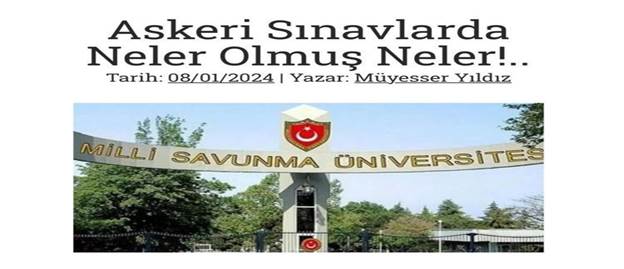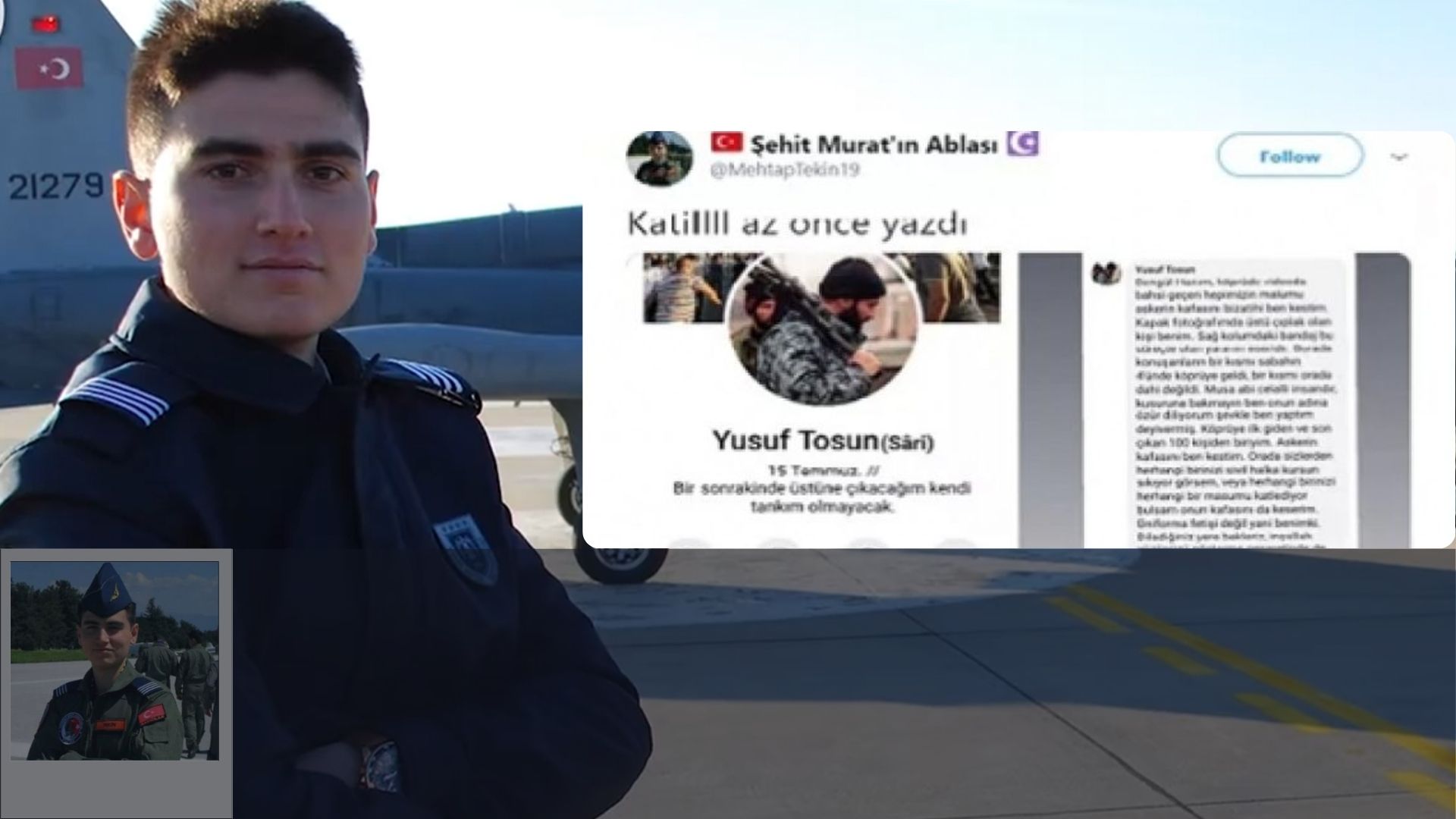A Critical Juncture for the Military

It is unfortunate, but it’s necessary to face the truth: there are now two opposing factions within the Turkish Armed Forces (TSK), and these groups are no longer operating covertly—they are acting openly. The first group (on the right) consists primarily of the Okuyucular, Kurdoğlu Group, and Menzil community. Additionally, there are other right-wing groups aligned with the government, including those whose recruitment processes are influenced by SADAT. While there are other minor right-wing groups, they do not possess the same level of influence as these four.
On the other side, the second group consists of the Kemalists (left). However, I hesitate to call them “Atatürkists,” because, from what I’ve observed, they are not truly committed to Atatürk’s principles or path. Unfortunately, it took us a long time to realize this. Some may criticize me for saying this, but it is the reality. Truly principled Atatürkist officers—those I’ve personally known—would never collaborate with a party that aligns with the AKP’s ideology. Moreover, they are honest individuals. Sadly, the number of such officers has diminished. And the state of those who remain is evident.
Let’s further analyze the current group: from the perspective of the TSK’s ideological structure, it would be inconceivable for a general officer to align with Iran or Russia. Officers are expected to follow Atatürk’s principles and pursue the path of contemporary civilization, starting from military high school. This ideology was not entirely harmonious with religion. As a result, many of these officers considered it their duty to resist religious movements under the label of “reactionism.” However, it’s clear that the number of such Atatürkist officers has dwindled.
The remaining Kemalist group today largely identifies as “Eurasianists.” There are smaller subgroups as well, but most of them are tied to specific sects and have lost their influence. From what I see, these left-leaning groups have used Atatürk more as a shield than a genuine ideological foundation. In my book, I even pointed out: Why would a former Commander of the Land Forces, Gen. Aytaç Yalman, frequently visit Iran? Given his background and training, this seems highly contradictory.
Even young TSK officers are traditionally taught to view Iran as a threat, yet in the past, a general like Tuncer Kılınç openly spoke of establishing an alliance with Iran. I found that statement highly significant.
In short, we can no longer describe today’s generals and officers as Atatürkists in the way we used to understand the term.
To demonstrate the influence of this leftist group, here’s one example: An officer who served at the Land Forces Command Headquarters until 2019 stated that almost the entire HQ was dominated by “Ulusalcı” (nationalist-left) personnel. They would even screen officers they suspected. According to this account, Military Judge Col. Mehmet Yüzbaşıoğlu would visit such officers under the pretense of friendly meetings and ask leading questions to assess their stance. I heard this from several officers. As of that time, the nationalist-left had almost complete control over the HQ.
Recent developments and incidents suggest that the ruling power is now significantly disturbed by this faction and is planning their purge. It’s highly likely that they already have lists prepared.
Meanwhile, the Okuyucular and Menzil communities are now acting quite openly, bolstered by their growing power. It also appears they are engaged in organized efforts to formally redefine the regime. SADAT covertly supports them. The recent statements about restoring the caliphate can be interpreted in this context—as attempts to lay the groundwork.

(Translation of the News:
“What has happened in military exams, what has happened!..”
Date:08/01/2024 Columnist: Müyesser Yildiz )
Looking ahead, it’s likely that one of these factions will eliminate the other, as the divide between them is too stark, and tolerance is no longer present. What method will be used remains to be seen.
The current government could use the Hablemitoğlu assassination as a pretext, leveraging it as a trigger to initiate a broad purge based on the lists they possess. However, this path is not without difficulty. Alternatively, they may pursue a legal amendment to restore the Supreme Military Council’s authority to expel officers from the TSK in the name of “state survival,” bypassing judicial oversight.
Opposing factions, recognizing the threat, might reluctantly accept a lifestyle and worldview that is not their own and try to adapt. But this seems unlikely. Another possibility is that these groups might risk everything and attempt a real coup. Whether they have the strength for that is unclear at this point.
Let’s see which group will ultimately prevail.
Military Judge Col. Dr. Cemil Çelik




